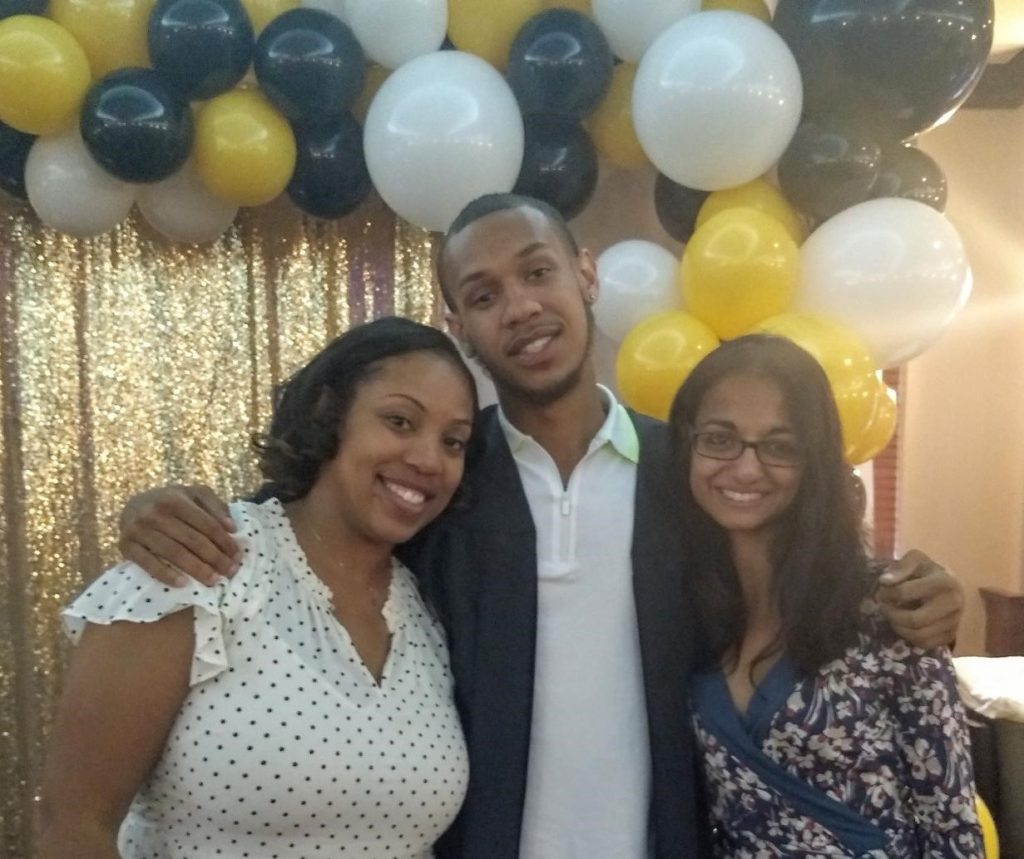
June 28, 2019: With June comes high school graduation. It’s a time for seniors and their families to celebrate their accomplishments and look forward to the next chapter in their lives. But for two Maryland students, graduation almost didn’t happen. Mere months before the end of the year, their schools kicked them out, in what the PJC believes were violations of student discipline and related laws. Below we share how the PJC not only helped get them back in school in time to graduate but is also working to reform districts’ discipline practices.
When a stranger picks a fight, but you get in trouble
One day while Angela* was walking to class, a girl she didn’t know approached her. Angela walked away, but the girl found her again later and started arguing with her. The argument became a fight in the guidance counselor’s office, and as a vice principal tried to intervene, Angela accidentally hit him. She apologized to the vice principal, who forgave her, but nevertheless, the school police officer handcuffed and arrested her. The following day she was suspended and recommended for expulsion.
The PJC represented Angela at the expulsion conference, where the case was quickly resolved when the school agreed that she should be allowed to return to finish her senior year. She graduated this month and is excited to begin college and pursue her goal of becoming a teacher.
Overcoming an unjustified arrest and suspension
Like Angela, Dante was on track to graduate before an unexpected encounter put him in danger of not making it. On the way to a basketball game, Dante and his friends were pulled over, supposedly because of the car’s tinted windows. The officer claimed that he smelled pot, so he handcuffed and searched everyone, plus the car. After allegedly discovering some pot hidden in the vehicle, he arrested everyone, including Dante, who was a passenger and did not own the car or know what was in it.
As if the unwarranted arrest wasn’t injustice enough, Dante’s school kicked him out a couple days later. By law, police departments are required to report student arrests to local school districts, which then can take action to ensure a “safe and secure educational environment.” Dante’s school district interprets the law to allow it to remove any student who is arrested in the community. Administrators prohibited Dante from entering school grounds, assigning him only three hours per week of home instruction and prohibiting him from participating in all school activities, including prom and graduation.
The Public Justice Center represented Dante in fighting the removal. Our first victory was modest: we increased his home instruction to six hours per week, and secured permission for him to come to school to meet with his guidance counselor so he could stay on track to graduate and prepare for college. Not satisfied, Dante and the PJC continued to advocate for his readmission, and eventually, we succeeded. In May, Dante returned to school. In June, he donned a cap and gown along with all his classmates, walked across the graduation stage, and received his diploma.
Standing with students, changing the system
The PJC represents students like Dante and Angela as part of our efforts to address race-based inequities in access to education and educational outcomes. Substantial research shows that schools disproportionately subject students of color to suspension, expulsion, and forced transfers, even when they commit minor disciplinary offenses, or act in similar ways to their white peers. This has a devastating impact on individual students who struggle to catch up to their peers after missing days or weeks of school, and it contributes to racial disparities in graduation rates, juvenile justice system involvement, and other academic and life outcomes.
At the heart of our work to address these racial inequities is the Maryland Suspension Representation Project (MSRP). A collaboration between the PJC, Disability Rights Maryland, the Maryland Office of the Public Defender, the Youth, Education and Justice Clinic at University of Maryland School of Law, and the Bazelon Center for Mental Health Law, MSRP provides advice and representation for students facing suspension and expulsion, as well as know-your-rights and advocacy education for youth and parents. We also take on the systems that push students out of school, advocating for policy reform and working with school districts to implement restorative practices and other alternatives to suspension and expulsion. Such constructive approaches to school discipline can improve student behavior, prevent and resolve conflict, improve school climate, and ultimately help students keep their education on track. We’re proud of Dante and Angela for persevering and hope that districts will see these students’ successes as examples of what is possible when schools work with students to resolve challenges rather than pushing them out.
*The student’s name has been changed to protect her privacy.



